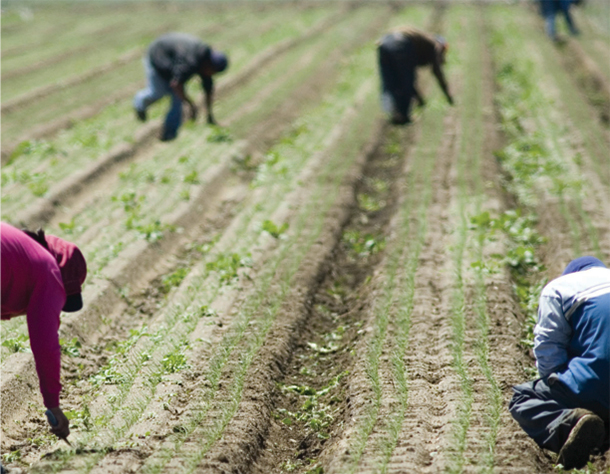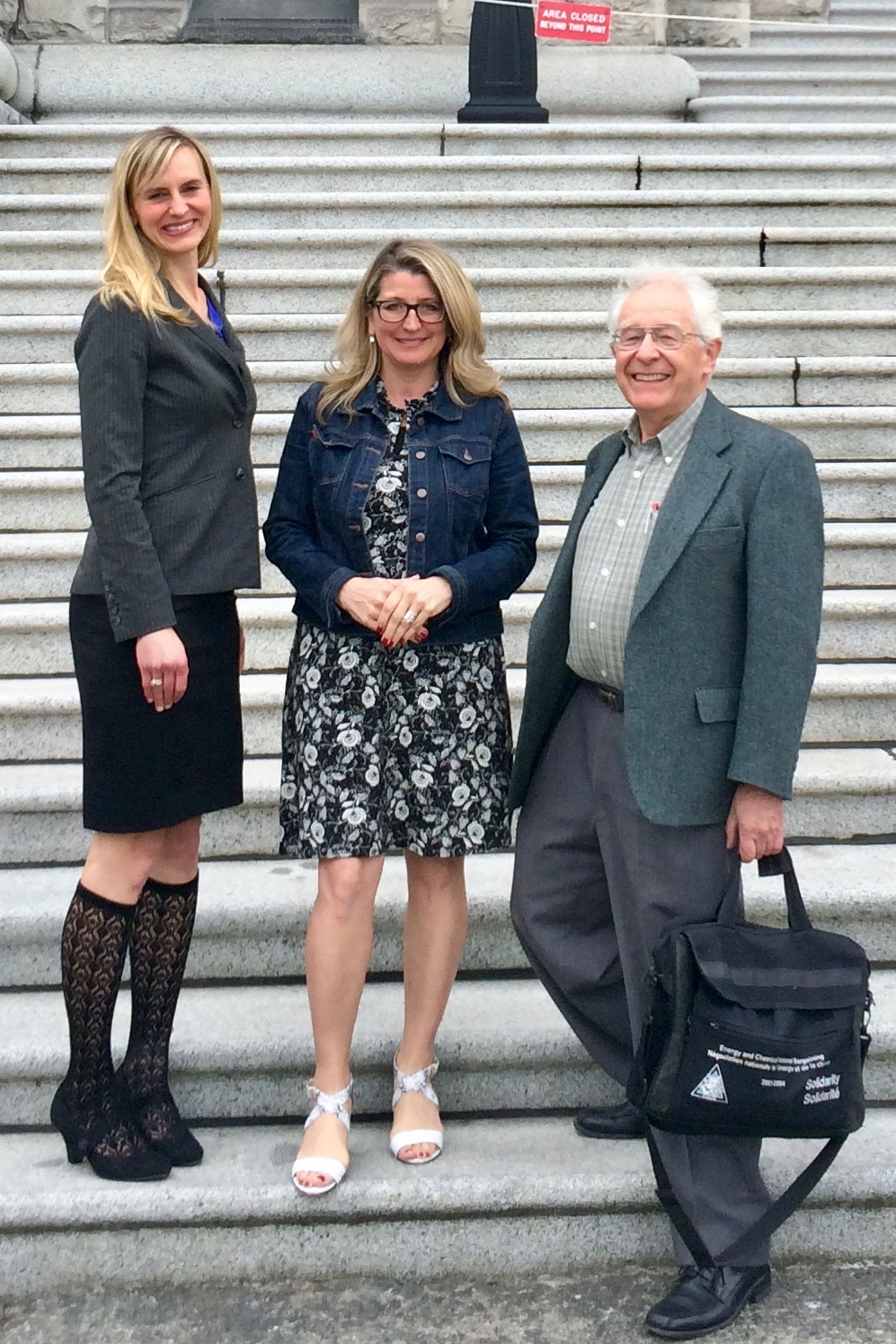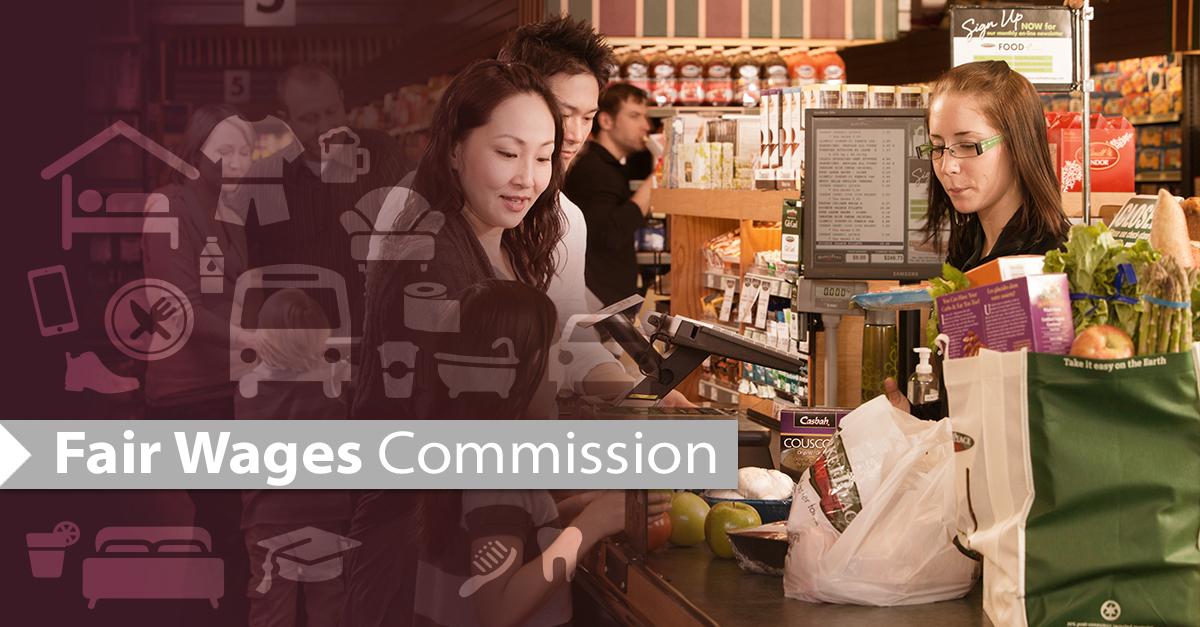
As of June 1st, liquor servers have finally been guaranteed at least the hourly minimum wage in B.C. This positive, long-overdue move will benefit many workers, particularly women.
But as BC Employment Standards Coalition members Anelyse Weiler and David Fairey argue in a new op-ed published by the Vancouver Sun, the government continues to discriminate against piece-rate farm workers. Piece rate farm workers in the Lower Mainland are often racialized recent immigrants, including many older women hired through farm labour contractors. As recommended by the Fair Wages Commission, farm workers should be guaranteed at least the hourly minimum wage.
Background
The piece-rate wage for agricultural workers is a workers’ rights issue the BC Employment Standards Coalition and others have been encouraging the government to address for years. Here’s an overview of some of our advocacy.
In 2018, Coalition members met with Agriculture Minister Lana Popham, Labour Minister Harry Bains, and Green MLA Adam Olsen to discuss the provincial government’s disappointing decision to continue excluding piece-rate farm workers from the general minimum wage. As discussed in our briefing notes, we called on the provincial government to adopt the Fair Wages Commission’s recommendation of an hourly minimum wage floor, with the option of incentive rates.
As Fairey and Weiler note in their 2018 Vancouver Sun op-ed (and CCPA Policy Note), the Fair Wages Commission’s recommendation is based on rigorous research by Professor Mark Thompson, B.C.’s former employment standards review commissioner. However, the government postponed a decision on the sub-minimum piece rate wage until additional research was conducted by UBC economist and Adjunct Professor Karen Taylor.
Taylor and a co-author, Paulina Gonzalez, completed their report in January 2019. We submitted a request for a copy of the report through the Freedom of Information and Protection of Privacy Act, but unfortunately all but two pages of the 82-page report were redacted. Our subsequent request to the Information and Privacy Commissioner for a review of our file was not successful. We published another op-ed on the issue in 2019 in the Penticton Herald (and CCPA Policy Note). Eventually the report by Taylor and Gonzalez was publicly released in December 2019, nearly a year after its completion. We submitted a critique of the report to the Labour Minister.
After we were unable to arrange a meeting with Labour Minister Harry Bains in the summer of 2020 to ask for an update on the government’s plans, we were eventually able to secure a meeting in January 2021. Disappointingly, the Minister indicated that ensuring a baseline hourly minimum wage for all piece-rate agricultural workers was not a priority for his Ministry.
Additional Resources
- Otero, G., & Preibisch, K. (2015). Citizenship and precarious labour in Canadian agriculture
- Fairey et al. (2008). Cultivating Farmworker Rights: Ending the exploitation of immigrant and migrant farmworkers in BC



 On November 23, BC Employment Standards Coalition Co-Chair David Fairey made a submission in Vancouver to the Fair Wages Commission as part of its consultation. The submission contains detailed responses to questions from the Commission including, “What is a reasonable timeframe or schedule of increases in the minimum wage to reach $15-an-hour?” and “What are your experiences or thoughts about the farm workers piece rates in B.C.?”
On November 23, BC Employment Standards Coalition Co-Chair David Fairey made a submission in Vancouver to the Fair Wages Commission as part of its consultation. The submission contains detailed responses to questions from the Commission including, “What is a reasonable timeframe or schedule of increases in the minimum wage to reach $15-an-hour?” and “What are your experiences or thoughts about the farm workers piece rates in B.C.?”